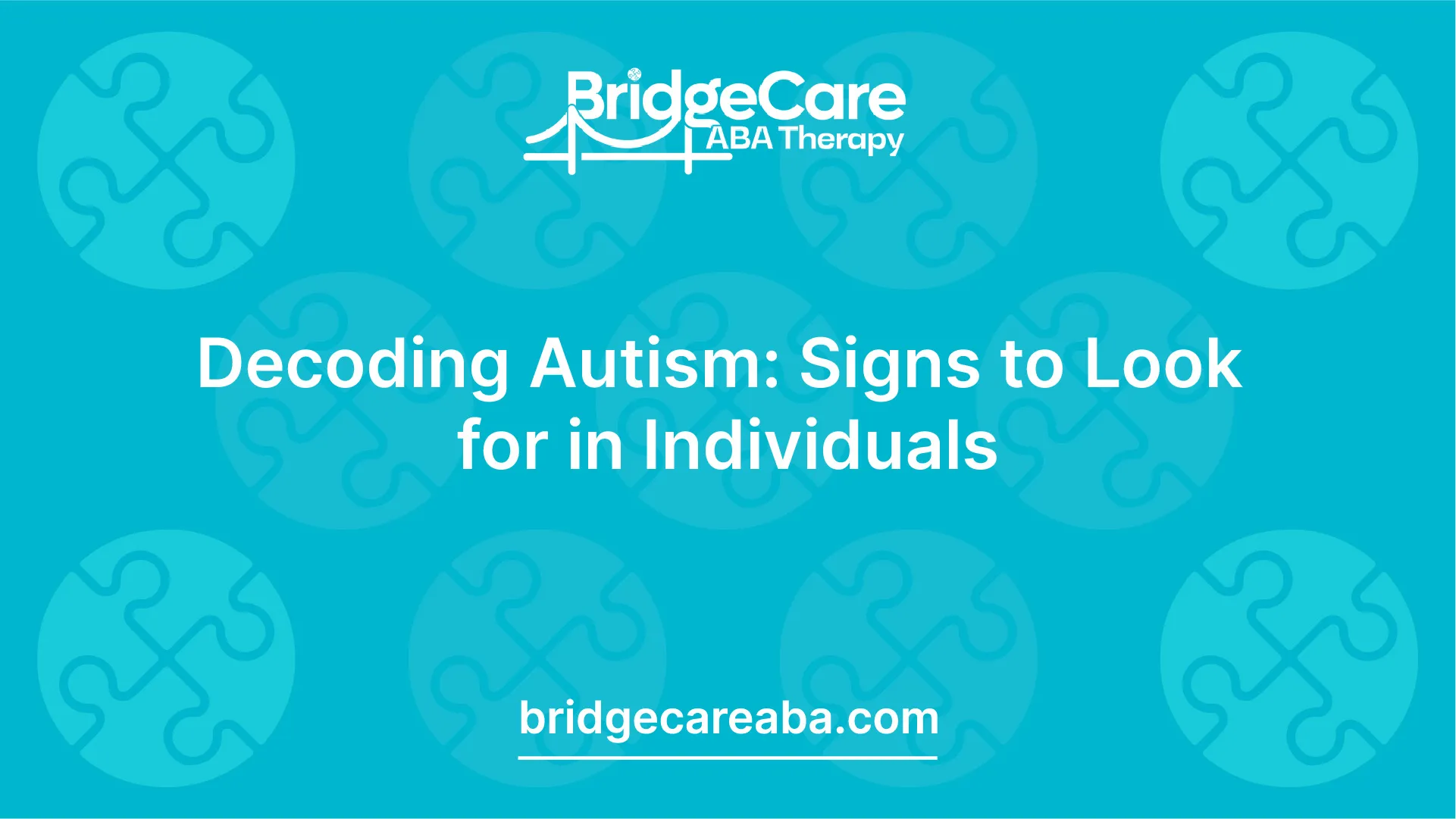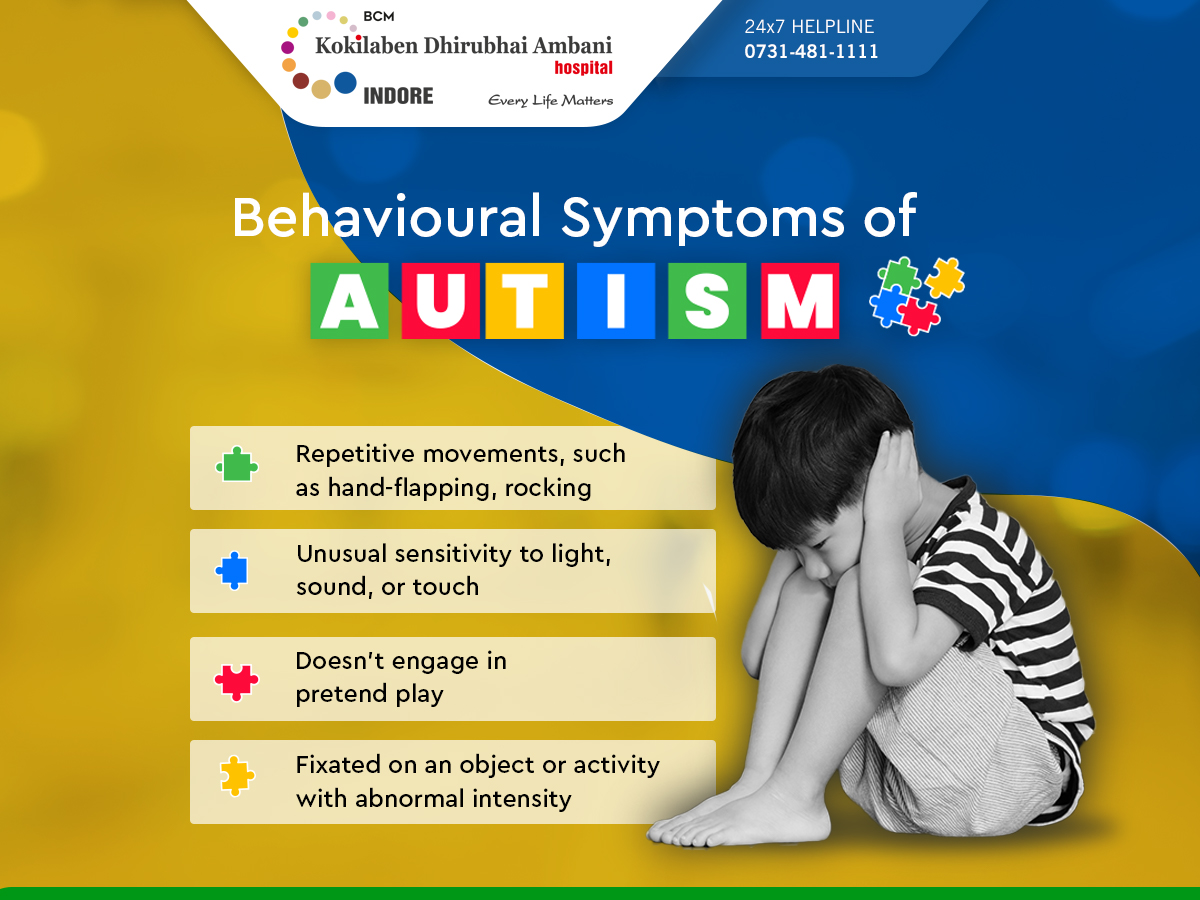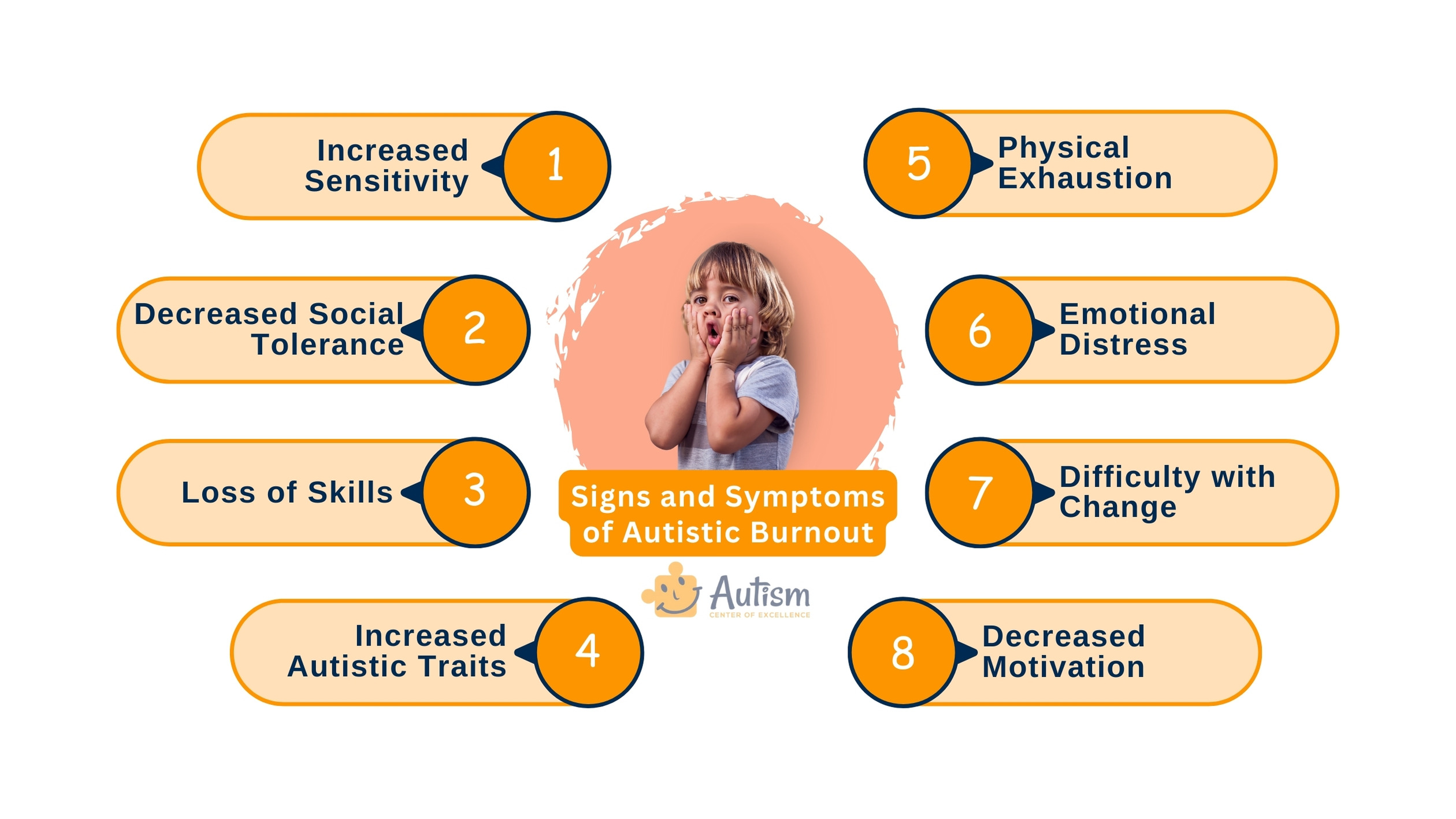Trick Symptoms And Signs to Acknowledge in Individuals With Behavior Autism
When you run into a person with behavioral autism, recognizing crucial signs and signs and symptoms is essential. In addition, sensory level of sensitivities can lead to frustrating experiences.
Challenges in Social Interactions
When you connect with somebody on the autism spectrum, you may observe they battle with social signs and interaction. These challenges can make social interactions feel overwhelming for them. You might see them avoiding eye contact or standing also close or also far during discussions, which can produce misunderstandings. They could not notice body language or facial expressions, making it harder for them to assess just how others are really feeling.
When they do involve, they might speak concerning their interests in excellent detail without noticing if you're interested. Recognizing these difficulties can aid you approach interactions with empathy and perseverance, fostering a more comfortable atmosphere for both of you.
Problem With Verbal and Non-Verbal Communication

Non-verbal communication can be a lot more tough. You may see a lack of eye call or restricted use motions, which can make interactions really feel uncomfortable. Facial expressions may not constantly line up with the discussion, bring about confusion concerning their feelings. Identifying these signs is essential, as it assists you better support and involve with individuals on the autism range. By understanding their interaction challenges, you can promote more significant links and provide a much more encouraging environment.
Recurring Habits and Regimens
Interaction challenges commonly accompany other indications of autism, such as recurring habits and a solid preference for regimens. You could discover that people with autism usually involve in certain, repeated activities, like hand-flapping, rocking, or duplicating expressions. These actions can offer convenience and a sense of control in a commonly overwhelming globe.
When they follow a structured routine,Routines are equally essential; numerous individuals thrive. You may find that changes to these regimens can bring about substantial distress. For instance, if they have a day-to-day routine of eating breakfast at a particular time or following a certain route to school, any disruption can create anxiousness.
Identifying these patterns assists you comprehend their behavior and give assistance. By fitting their requirement for routine and permitting recurring actions, you can produce a more comfy setting that relieves their challenges.
Sensory Level Of Sensitivities

Typical Sensory Triggers
Sensory level of sensitivities can significantly influence day-to-day live for people with autism, as particular stimuli usually set off frustrating responses. Common sensory triggers include loud sounds, intense lights, and strong smells. You could notice that unexpected noises, like alarm systems or alarms, cause stress and anxiety or distress. Fluorescent lights in shops can really feel harsh and unpleasant. Textures can likewise play a considerable duty; harsh textiles or particular food textures may be intolerable for you. Furthermore, crowded locations can bewilder your detects, making it tough to concentrate or relax. Comprehending these triggers can help you manage your environment better. By knowing what affects you, you can take steps to reduce discomfort and improve your everyday experiences.
Behavioral Responses Clarified
Understanding your behavior actions to sensory sensitivities is important, as they frequently reveal just how you engage with the world. You might see that specific sounds, lights, or textures overwhelm you, leading to anxiousness or discomfort. When faced with these stimulations, you might take out, cover your ears, and even react boldy. These actions aren't just traits; they're your method of handling overstimulation. You might also locate on your own seeking specific sensory experiences, like deep stress or peaceful environments, to assist ground yourself. Identifying these patterns helps you recognize your requirements far better and can assist how you interact them to others. By recognizing your sensory sensitivities, you can work towards producing an environment that really feels much more convenient and comfortable for you.
Coping Approaches Overview
Acknowledging your sensory level of sensitivities is just the very first step; currently it's time to discover coping strategies that can assist find more info you handle those experiences effectively. Start by producing a sensory toolkit customized to your demands. This could include noise-canceling headphones, fidget toys, or soothing fragrances. Establishing a structured regimen can also offer predictability, minimizing anxiousness click resources around sensory overload. When you really feel overwhelmed, take breaks in a quiet space to regroup. Practicing mindfulness techniques like deep breathing can help ground you in the moment. Additionally, communicate your demands with those around you; having supportive loved ones can make a significant difference. Remember, discovering what functions finest for you may take some time, so be patient and open to trying new approaches.
Limited Passions and Focus
While several people create a vast array of interests, those with autism frequently show limited interests and an extreme concentrate on specific subjects. You may notice that a person with autism can spend hours diving into their favorite topic, whether it's a particular sort of train, a certain movie, or a clinical idea. This extreme focus isn't simply a pastime; it can come to be a central component of their identity and social communications.
You may locate that conversations revolve around these rate of interests, and they may have a hard time to involve in broader topics. For them, these concentrated passions supply comfort and a feeling of mastery. While it is very important to encourage expedition of new topics, respecting their enthusiasms is just as necessary. By understanding and recognizing these limited passions, you can cultivate a helpful setting where they really feel valued and understood, permitting more meaningful links and communications.
Psychological Regulation Problems
Individuals with autism Autism Behavioral Therapy commonly deal with difficulties in emotional regulation, which can be affected by their extreme emphasis on details passions. You may discover that when an individual is deeply engaged in a favored activity, they can experience solid feelings, whether enjoyment or irritation. When points don't go as planned., this strength in some cases makes it difficult for them to shift equipments or manage their sensations - Autism Spectrum Therapies.

Irregularity in Developing Landmarks
When it involves developing milestones, you'll discover that individuals with autism usually show a large range of irregularity. Some might strike milestones in a timely manner, while others could delay behind or progression at a various pace. For example, you might see a child stand out in language abilities yet fight with social communications. This incongruity can be complicated, as standard criteria do not always apply.
It's important to identify that each person's journey is distinct. Some may develop intricate abilities early, only to face obstacles later. Others may take longer to accomplish basic landmarks yet then flourish in specific locations. Observing these patterns can assist you comprehend their strengths and requires much better.
Frequently Asked Inquiries
Exactly How Is Autism Diagnosed in Children and Grownups?
To identify autism in grownups and kids, experts evaluate actions, communication skills, and social communications. If a specific satisfies the criteria for autism range disorder., they usually utilize standardized examinations, interviews, and monitorings to identify.
Exist Different Kinds Of Autism Range Disorders?
Yes, there are different sorts of autism spectrum conditions, consisting of Asperger's disorder and prevalent developing disorder-not otherwise defined. Each kind differs in severity and features, so understanding these differences can aid you better assistance individuals with autism.
What Therapies Work for People With Autism?
When thinking about reliable treatments for individuals with autism, you'll find alternatives like Applied Actions Analysis, speech therapy, and work-related treatment. Each method can assist boost interaction, social skills, and daily working customized to specific needs.
Can Individuals With Autism Lead Independent Lives?
Yes, individuals with autism can lead independent lives. With the best assistance, abilities training, and sources, you can aid them develop self-sufficiency, manage everyday tasks, and prosper in numerous environments, fostering their self-reliance.
Just How Can Family Members Assistance Enjoyed Ones With Autism?
You can sustain your loved ones with autism by creating a structured atmosphere, motivating their rate of interests, practicing persistence, promoting interaction, and advertising social skills. Celebrate their accomplishments, no matter exactly how little, and develop a helpful neighborhood.
Although lots of people on the autism range can comprehend and utilize language, they usually face significant challenges with both non-verbal and spoken interaction. Identifying these indications is crucial, as it aids you far better support and engage with people on the autism range. You could observe that individuals with autism frequently engage in specific, repetitive activities, like hand-flapping, shaking, or repeating phrases.Sensory level of sensitivities can substantially influence everyday life for individuals with autism, as particular stimulations typically set off overwhelming responses.When it comes to developmental milestones, you'll see that individuals with autism frequently show a broad range of irregularity.
Comments on “What’s involved when working with an Autism Behavioral Therapy program practitioner”